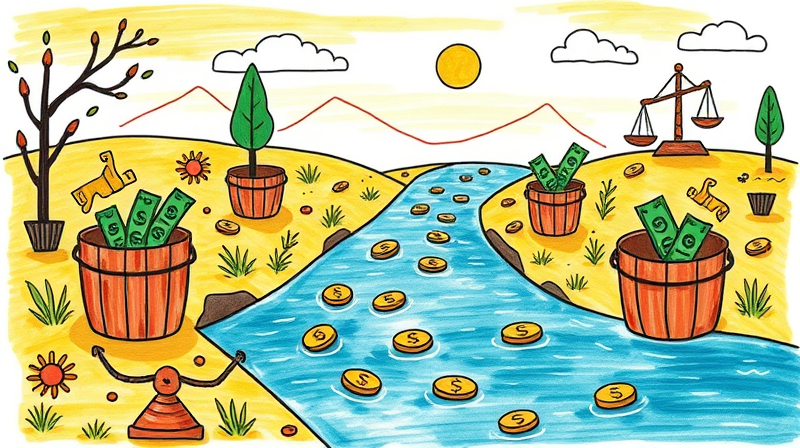
In an era where digital transactions, multiple accounts, and a barrage of subscriptions converge, it is easy to feel submerged. Every email notification, bank statement or credit card bill can add to an ever-growing mountain of financial tasks. This complexity not only scatters your attention but also saps your energy, leaving you overwhelmed by daily money choices and questioning whether you will ever gain true control over your finances.
Yet there is a path to clarity. By embracing principles from both minimalism and proven financial strategies, you can strip away what is unnecessary and focus on what truly matters. This article offers a robust, evidence-backed framework to help you transform chaos into calm, cut through clutter, and build a sustainable system that promotes lasting financial well-being.
When finances are tangled, the mind often follows suit. Research shows that financial stress affects sleep patterns, mood, and even interpersonal relationships. Only 29% of people report feeling hopeful about their future, a dramatic drop from 60% just one year ago. In addition, 19% of respondents note tension in their relationships due to money worries.
These pressures can lead to a cycle of avoidance—ignoring bills until they pile up, avoiding account reviews, and allowing subscriptions to renew unchecked. Breaking that cycle begins with acknowledging that your financial environment profoundly influences your mental state. By creating clear and intentional money habits, you can reduce anxiety and reclaim emotional energy for more meaningful pursuits.
Minimalism is not about deprivation; it is about prioritizing. Applying this mindset to your money life means you systematically streamline accounts, credit products, and recurring charges to keep your focus on activities that align with your core values.
Consider the staggering figure of 2.3 billion square feet of self-storage space in the U.S.—a physical sign of our collective hoarding. Just as physical decluttering saves money and space, financial minimalism can yield immediate and ongoing savings, such as canceling a few subscriptions to free up an extra $50 a month.
Adopting a minimalist approach delivers multiple benefits:
Decluttering your finances might feel daunting, but by tackling one element at a time, progress comes quickly and builds momentum. Follow this structured plan to simplify effectively:
Financial decluttering often reveals deeper emotional ties—guilt, fear, attachment to status symbols, or nostalgia for old credit cards with reward points. Overcoming these barriers is essential to sustaining progress:
• Acknowledge fear of missing out: remind yourself that unlimited subscriptions rarely deliver unlimited value.
• Reframe guilt about letting go: view account closures as steps towards freedom, not as losses.
• Replace outdated beliefs: challenge the notion that owning more equates to success or security.
By facing these feelings head-on, you free mental bandwidth for positive change and cultivate greater financial self-confidence. People with strong financial literacy report 9% lower stress levels and overall improved health metrics—an important reminder that knowledge is an emotional anchor.
A clear grasp of relevant data can inspire action and validate your efforts. Below is a snapshot of key statistics that illustrate why decluttering matters:
These figures show that decluttering delivers measurable benefits. When you reduce extraneous accounts and services, you not only save money but also build confidence in managing your resources.
A one-time purge is a powerful start, but sustaining simplicity guarantees lifelong gains. Here are strategies to maintain your streamlined system:
• Schedule annual reviews: circle a date on your calendar to reassess accounts, debts, and subscription services.
• Automate routine tasks: use automatic transfers to savings, automate bill payments, and enable spending alerts.
• Track progress publicly: share milestones with friends or a community to reinforce accountability.
By embedding these habits into your routine, you ensure that clutter does not creep back in. Over time, you will notice improved clarity, reduced decision fatigue, and a stronger sense of financial purpose.
Financial decluttering is more than a practical exercise; it is a mindset shift towards intentional living. By stripping away what does not serve you, you gain space to pursue what truly matters—whether that is time with loved ones, career aspirations, or personal growth.
Embrace the paradox of less: when you simplify your finances, you amplify your freedom and capacity for joy. Start your journey today with one small change, and watch how each deliberate step leads to a more profound sense of control and well-being. The power of less is yours to wield.
References













